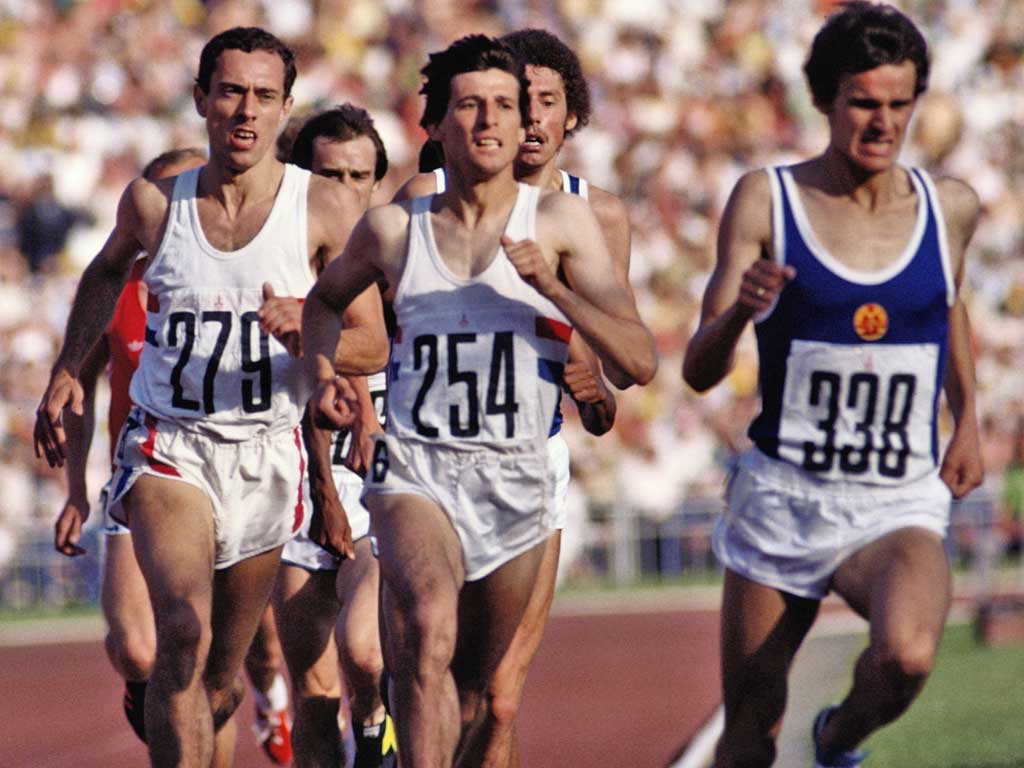Sebastian Coe: 'There was no way Ovett was going to beat me twice'
Continuing our series, the 800m champion recalls gaining vengeance for 1500m defeat

Your support helps us to tell the story
From reproductive rights to climate change to Big Tech, The Independent is on the ground when the story is developing. Whether it's investigating the financials of Elon Musk's pro-Trump PAC or producing our latest documentary, 'The A Word', which shines a light on the American women fighting for reproductive rights, we know how important it is to parse out the facts from the messaging.
At such a critical moment in US history, we need reporters on the ground. Your donation allows us to keep sending journalists to speak to both sides of the story.
The Independent is trusted by Americans across the entire political spectrum. And unlike many other quality news outlets, we choose not to lock Americans out of our reporting and analysis with paywalls. We believe quality journalism should be available to everyone, paid for by those who can afford it.
Your support makes all the difference.The build-up was all about myself and Steve Ovett. We were both chasing the spoils and something had to give. They were saying if Seb beats Steve or Steve beats Seb the chance is that they will win the gold medal.
There had been great rivalries before in middle-distance running. Jim Ryun and Kip Keino was legendary, but even that didn't match up. Moscow was a domestic battle, but it was also an Olympic final. This was a unique head-to-head and the world was watching us.
Steve had beaten me a few days earlier in my speciality, the 800 metres, and I was hugely disappointed. But that was inexperience. I hadn't properly understood the enormity of the Olympic Games. I felt so lucky to have the opportunity to make amends so soon after that with the 1500m.
I had to forget about Steve. It was risky to focus entirely on one person. And after the 800m, I had learnt that the hard way. There was no way I was going to make that same mistake. The only person I had to focus on was me. I never wanted to step off the track again knowing that I had run so far below what I was capable of. If anyone was going to beat me they would have to die with blood in their boots.
I didn't speak to Steve at all between the two races. We weren't great friends and we'd only raced against each other twice before, at the European Championships in 1978 when he beat me in the 800m, and then back in 1973 at the English Schools Cross Country Championship. He was a year older than me and finished second or third, I came in ninth. We were different characters from different parts of the country. Geographically and socially, you couldn't get too more different cities than Brighton and Sheffield.
The overwhelming feeling as I crossed the line wasn't ecstacy. It wasn't joy. It was relief. People don't realise how much goes into it. The Olympics are not about the races or even a few weeks or months. It's the culmination of years of effort. It is the pinnacle of over half a lifetime's worth of effort.
It's also about the people around you. The people who helped; the coaches, the families and the friends. The relief is that you haven't let them down – the gratification that after everything it has not all come to nothing. And then there's the sheer elation.
But the Olympic Games is an odd environment. You are in a village. You are isolated from the rest of the world. You are not really aware of what is happening back home. It was only after I got back from Moscow that I realised how much my race had captured the imagination, and how much it meant to the people back in Sheffield.
There were taxi drivers who were telling me how they were driving the cabs around beeping their horns the moment I won. The excitement was everywhere, my neighbours, my street, my old school friends – everyone seemed captured by it all. I still get people telling me exactly what they were doing and where they were the moment I crossed the finishing line as the Olympic champion in 1980.
Afterwards, it isn't like a Zurich or an Oslo meeting, where you'd perhaps do a quick drugs test and then be on a flight home. There was a mountain of media to do and I was still in my running kit at 10pm. I remember going down to have supper with Daley Thompson, who had already won his gold, in the cafeteria. I recall Lynn Davies and Mary Peters joined us. There was no great celebration. And then we turned in for the night.
This series is run with Richard House Children's Hospice, based in the Olympic borough of Newham. It caters for children with life-limiting, life-threatening and complex healthcare conditions. To find out more and to vote for your favourite British Olympic moment, visit facebook.com/richardhousech
Join our commenting forum
Join thought-provoking conversations, follow other Independent readers and see their replies
Comments